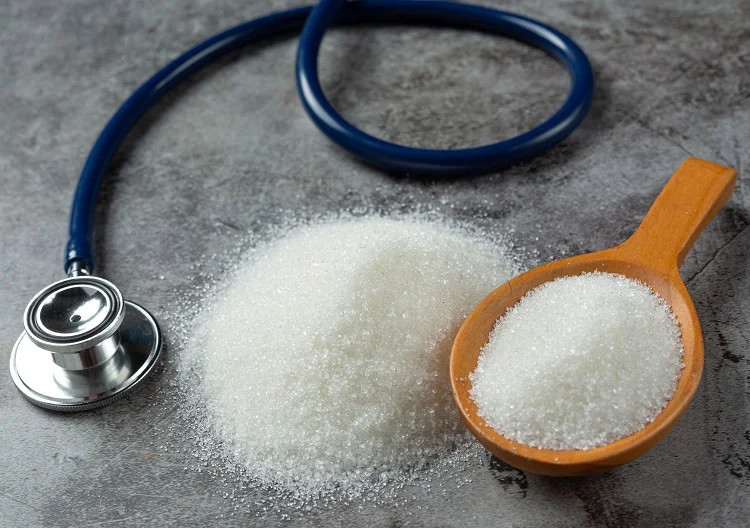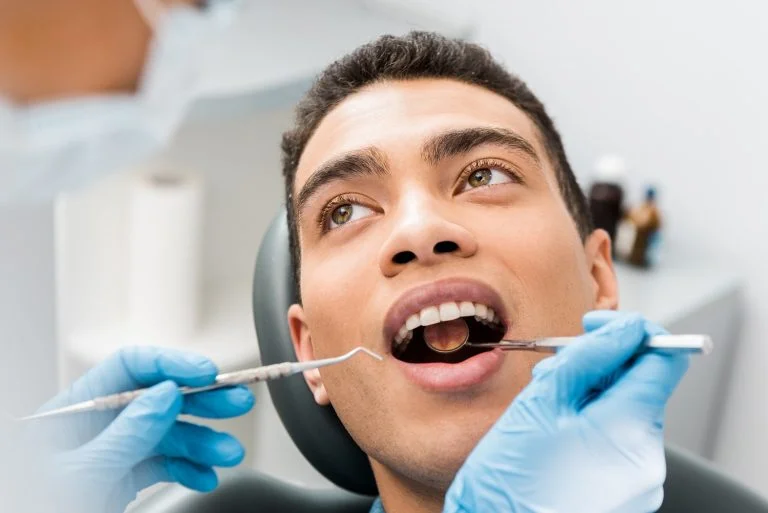Extractions
Extractions
What are they, and why are they needed?
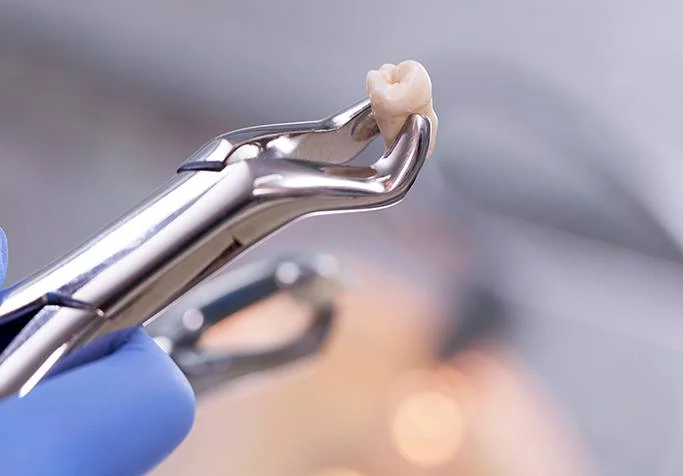
Tooth extractions are a common dental procedure that involves the removal of a tooth or teeth from the patient’s mouth.
Extractions -also known as tooth extractions- may be necessary for various reasons.
Why are dental extractions required?
There are several reasons why tooth extractions may be required:

Advanced dental caries
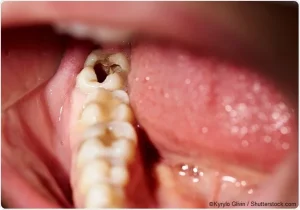
Advanced dental caries can severely damage the tooth and make it impossible to rehabilitate it. In these cases, tooth extraction may be the only option.
Impacted Teeth
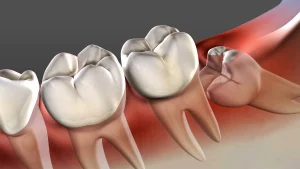
This occurs when a tooth cannot fully come out of the gum due to other teeth blocking it. Impacted teeth can be painful and cause other dental problems, so extraction may be necessary.
Supernumerary Teeth
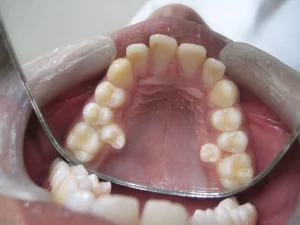
Supernumerary teeth are extra teeth that develop in the mouth. Sometimes these extra teeth can cause dental difficulties and require extraction.
Effects of periodontal disease
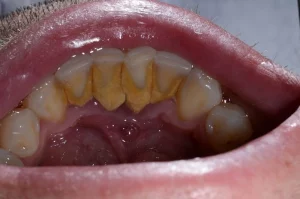
If this disease is not treated properly, it can cause irreparable damage to the teeth and gums, and often, extraction of the affected teeth is necessary.
Orthodontics
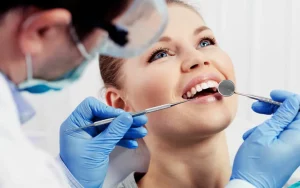
In some cases, it is necessary to extract teeth to create space in the mouth and allow the remaining teeth to move into a more suitable position during orthodontic treatment.
Types of dental extractions
There are two main types of tooth extractions: simple and complex.
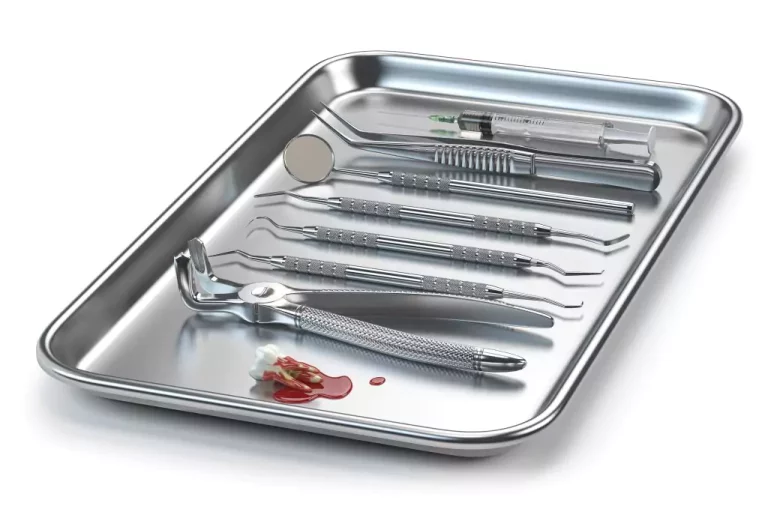
- Simple Extractions:
Simple extractions are performed when the tooth is visible in the mouth and can be removed without the need to cut through the gum or remove bone tissue.
- Complex extractions:
These are those in which the tooth is not visible in the mouth and requires an incision in the gum and/or the removal of the bone to extract the tooth. Complex extractions may require general anesthesia and, in some cases, referral to an oral surgeon.

19 Natural Antibiotics to Ward Off Any Dental Infection
Sign up to receive daily email dentist tips and challenges, as well as our comprehensive Better smile Guidebook.
Recovery after a dental extraction
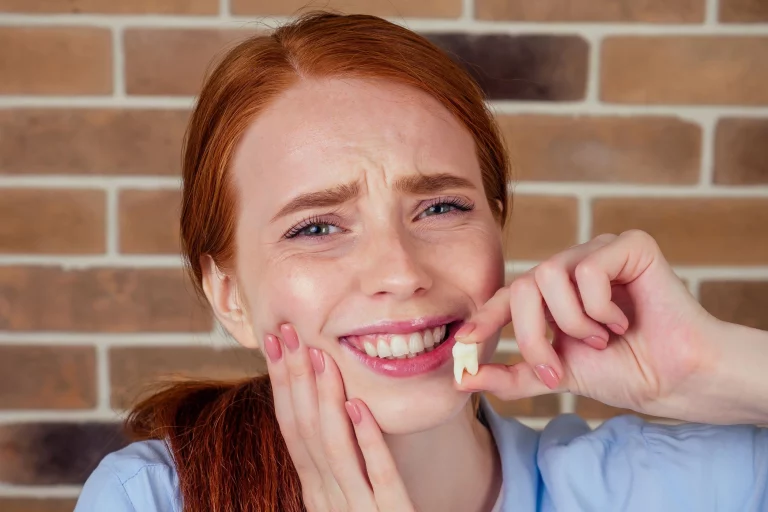
It is normal to experience some discomfort and pain after tooth extraction. The intensity of pain and the length of time it lasts can vary depending on the complexity of the extraction and the general dental health of the patient. To minimize discomfort and pain after a tooth extraction, it is recommended:
Apply ice to the extraction area

This helps reduce swelling and pain.
Rest

After the extraction, it is important to rest and avoid strenuous physical activity for the first 24 hours.
Take medication

Your dentist may prescribe pain relievers to help control pain after the extraction.
Avoid solid and sticky foods

It is the recommendation for the first 24 hours. Soft and cold foods such as ice cream or yogurt can be consumed.
Maintain good dental hygiene

Although the extraction area can be sensitive and painful. It is essential to maintain good dental hygiene to prevent infection. Gently brushing the teeth near the extraction site and rinsing the mouth with warm salt water is recommended to reduce swelling and promote healing.
It is necessary to follow the dentist’s instructions after a tooth extraction to ensure that recovery is as quick and comfortable as possible.
If symptoms such as fever, severe pain, or prolonged bleeding are experienced, you should contact your dentist immediately.
Conclusion
Choose the dentist for dental extractions
If you require a dental extraction, it is relevant to choose a dentist trained and experienced in these interventions, since any error during the procedure can generate complex management conditions. Our directory of dental professionals is a useful tool that offers you information on different oral health service options, by qualified professionals. Consult the directory and select the best alternative for your requirement.

19 Natural Antibiotics to Ward Off Any Dental Infection
Sign up to receive daily email dentist tips and challenges, as well as our comprehensive Better smile Guidebook.
Our Doctor
Meet Doctor
Dr. Andreas
Dental specialist

19 Natural Antibiotics to Ward Off Any Dental Infection
Sign up to receive daily email dentist tips and challenges, as well as our comprehensive Better smile Guidebook.



